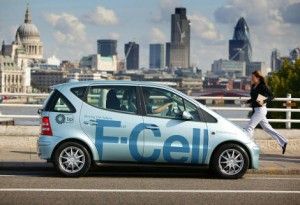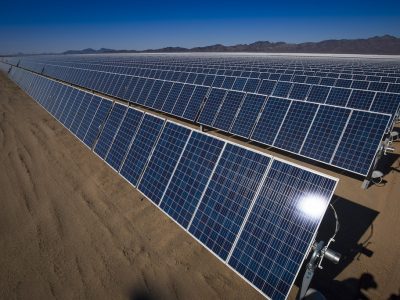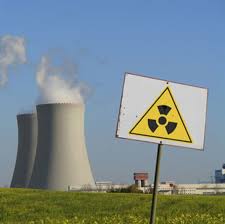Hydrogen “Fool” Cells Vs. Electric Vehicles
The debate over the best clean vehicle technology
California recently committed to spending $50 million on 28 public hydrogen fuel cell charging stations, throwing gasoline (bad pun) on the fire of a growing debate: electric vehicles vs, hydrogen fuel cells as the carbon-free vehicle technology of the future. California policy makers seem to think it may be both, based on their spending to support the two technologies.

But the evidence to date suggests that hydrogen fuel cells, which automakers like Toyota are committed to, may actually be “fool cells,” as Tesla CEO Elon Musk calls them derisively. Joe Romm, expert on alternative fuels from the US Department of Energy and author of a 2004 book on the debate, takes a strong position against hyrdogen fuel cells. His point? The fuel (hydrogen) will come from dirty sources for the foreseeable future, compared to clean, electric-powered battery vehicles:
Converting cheap fracked gas into hydrogen is very likely going to be substantially cheaper than practical, mass-produced carbon-free hydrogen for decades, certainly well past the point we need to start dramatically reducing transportation emissions (which is ASAP).
For EVs, on the other hand, unsubsidized renewable electricity is already directly competitive with grid electricity in many parts of the country — and poised to continue dropping in price. In places where carbon-free power is on the rise, such as California, the electricity is already far less carbon intense than the nation as a whole. That’s why EVs in a state like California is already super-green.
In terms of climate change impacts, Romm is clear:
So from a greenhouse gas perspective, there is no competition between pure electrics and hydrogen fuel-cell vehicles. EVs win hands down and will continue to do so for the foreseeable future.
I’m all in favor of fostering competition among promising clean vehicle technologies, but Romm’s critique points to the significant environmental disparity between these technologies, at least in the short term. In addition, there is a huge expense associated with developing an entirely new fuel infrastructure for hydrogen. EVs, by contrast, can access ubiquitous electricity throughout our developed areas. It’s also disappointing to see California commit to spending so much public money on a technology that consumers are not demanding, particularly given the ongoing need for investment in new EV charging stations in the state.
EVs certainly have a ways to go in terms of decreasing costs and increasing battery range. But automakers are making progress and consumers are responding. If companies like Toyota think hydrogen fuel cells are a better deal for California drivers and the environment, then let them spend their own money to prove it.
Reader Comments
3 Replies to “Hydrogen “Fool” Cells Vs. Electric Vehicles”
Comments are closed.







The price of natural gas currently is very cheap (< $4/thousand cu. ft.), but it can't stay that way. Drilling and fracking shale-gas formations is very expensive, and is currently above the break-even price of the product absent any associated hydrocarbon liquids. In addition, the high production decline rates of shale gas plays indicates those sources have little future potential without significant price increases, and even with better prices will become a rapidly declining source.
What you mention is merely the proverbial tip of the iceberg when it comes to fuel cells. They require expensive platinum catalysts. They have a short lifetime. Furthermore, even if hydrogen becomes cheap and green, it is dangerous and both difficult to store and transport.
“It’s also disappointing to see California commit to spending so much public money on a technology that consumers are not demanding,” Just because consumers are not demanding anything does not mean the fossil fuel lobby is not.
Won’t someone please think about the fossil fuel industry.